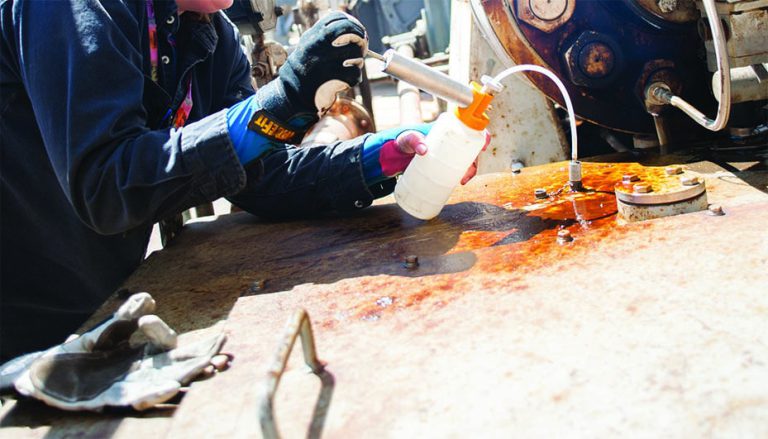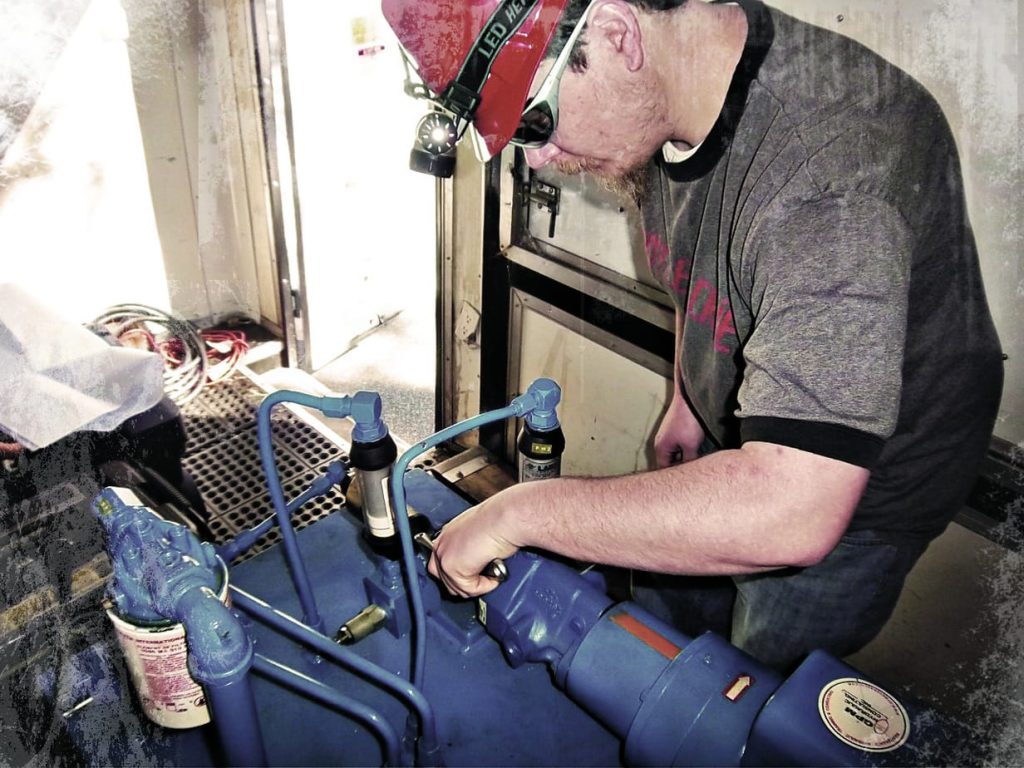A lubrication technician, or “lube tech” as they are often called, is a skilled position on maintenance and reliability teams that can involve a variety of different possible responsibilities and knowledge relating to lubrication, oil analysis, and inspections.
Semi-annual national mail surveys conducted by the United States Bureau of Labor Statistics (BLS) measure occupational employment and wage rates. Let’s investigate the nine respective categories these surveys cover which help maintenance organizations determine what wages they should be offering in order to attract qualified candidates in today’s job market.
Industrial facilities have struggled to staff skilled workers in recent years, and the problem will not be going away any time soon. If payroll budgets or hiring freezes are in effect, contract lubrication technicians may be a good option as well. In that case, you can use these points to evaluate potential suppliers of contract-based lube techs. Accurate job descriptions can also be formulated from analyzing the following information.
Knowledge
Lubrication technicians are routinely responsible for a variety of tasks — visually inspecting plant machinery, oil sampling, lubrication maintenance and application tasks, and many more. To perform these assignments efficiently, lube techs must not only understand what to do, but why these actions are needed. A skilled lube tech has studied and been trained in areas such as contamination control, oil analysis tests, and susceptibility to biases from sampling and lubrication.
Lubrication technicians may be certified by bodies like the International Council for Machinery Lubrication (ICML) or the Society of Tribologists and Lubrication Engineers (STLE) for various levels of expertise and domains of knowledge. Some of the most commoncertifications for lube techs are the Certified Lubrication Specialist (CLS, offered by STLE) or the Level I Machinery Lubrication Technician (MLT I, offered by ICML).
Qualified lube techs like those contracted from Industrial Fluid Management knowhow to read oil analysis reports and utilize the data recorded. They also understand the significance of correcting minor problems before the problems snowball and cause harm to any machinery. Being able to notice an undesirable state through visual inspection alone takes skill, and properly sampling oil takes knowledge and care.
Supervision Required
In some organizations, lube techs report to maintenance or reliability supervisors, while others have dedicated lubrication teams that are fairly autonomous. Consider the level of supervision that will be required in your facility. Do you have an existing lubrication program with documented goals, metrics, and KPIs, or are you starting from scratch? Perhaps your lubrication technician will also lead your lubrication program overall. In such cases, a lubrication technician may command higher compensation.
Guidelines
Procedures are crucial to managing a healthy lubrication program, but situations will inevitably arise that no previous procedure were created to handle. When guidelines are not applicable, lubrication technicians must use their own judgement to adjust the guidelines as needed.
A lube tech’s learned instincts should allow them to be comfortable and confident when making these judgement calls. For both lubrication maintenance tasks and oil analysis job functions, the ability to quickly adapt procedures to fit irregular scenarios for the best possible results should be considered a prized skill.

Complexity
To touch on points previously made, the varying tasks, guidelines, and schedule of a lubrication technician adds an inherent complexity to their work. Not only must a lube tech be quick-thinking, but he/she should be ready to adapt to change and recognize how unrelated task methods are based on previously established relationships.
Scope and Effects
If you are attempting to development and nurture a world-class lubrication program, you must avoid falling into bad habits. Perhaps the worst and most common bad habit seen in plants is the belief that maintenance’s role is to repair equipment once it has already failed.
In fact, a more effective maintenance team keeps a plant up and running by preventing failures before they occur. The fields of lubrication and oil analysis deal with eliminating and monitoring root causes of failures. Lube techs should therefore be trained and certified in such areas and fully understand their significance in the context of larger maintenance and reliability goals.
Personal Contacts
It is important to keep in mind that lubrication technicians are not meant to be lone wolves; an effective lubrication program needs to be connected with other teams like maintenance and operations. If there is no clear plan to communicate problems when they appear, issues may go unresolved until a major problem makes them impossible to ignore.
Skilled lube techs know to seek out a manager, operations personnel, or engineer when something of concern pops up.
Purpose of Contacts
Lubrication technicians act as investigators, data collectors, and data analysists, yet are not managers in most organizations. Some up-and-coming lubrication programs may require that lube techs take on supervisory roles, though. When an organization has a more general maintenance personnel base, lube techs should be utilized to oversee lubrication tasks. If the technician will need to coach or train people, it should be reflected in their compensation.
Physical Demands
The work lubrication technicians undertake cannot be properly completed while sitting at a desk. Lube techs spend most of their time in the plant utilizing all manner of tools necessary to perform lubrication tasks which are moderately physically demanding. While no one should expect their lube tech to be Arnold Schwarzenegger, the role does require the ability to routinely conduct physically demanding tasks and procedures.
Work Enviroment
If you are attempting to development and nurture a world-class lubrication program, you must avoid falling into bad habits. Perhaps the worst and most common bad habit seen in plants is the belief that maintenance’s role is to repair equipment once it has already failed.
In fact, a more effective maintenance team keeps a plant up and running by preventing failures before they occur. The fields of lubrication and oil analysis deal with eliminating and monitoring root causes of failures. Lube techs should therefore be trained and certified in such areas and fully understand their significance in the context of larger maintenance and reliability goals.
National Median
As of May 2020, the BLS Occupational Employment and Wage Statistics (OEWS) survey reports the median annual wage of a full-time industrial machinery mechanic (a category in which lube techs fall into) is $55,490, or $26.68 hourly. However, the range from the lowest 10% to the highest 10% indicate that a lube tech’s annual wage could fall anywhere from $35,190-$81,950.
It should be noted that these figures are national medians which do not include benefits and overtime. Data on contract-based lubrication technicians or those who are self-employed were not collected by the OEWS survey. Local cost-of-living factors and labor market realities along with skills and qualifications will all affect the wages of individual candidates.
Your mileage may vary depending on the level of competency and experience you are seeking in a lubrication technician, but if you do not have the current resources to hire lube techs, consider outsourcing veteran lubrication technicians from solution providers like IFM.
Free Whitepaper Download

